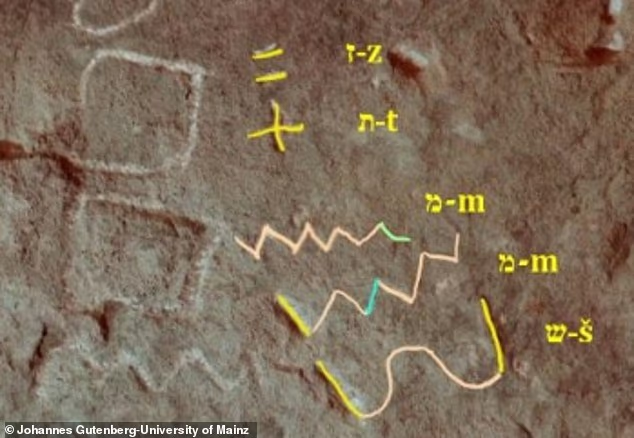A controversial new reading of ancient Egyptian inscriptions may lend support to the biblical story of the Exodus.
As reported by the Daily Mail, researcher Michael Bar-Ron said a 3,800-year-old Proto-Sinaitic inscription, etched into the rock at Serabit el-Khadim in Egypt’s Sinai Peninsula, could read “zot m’Moshe,” Hebrew for “This is from Moses.” The carving, located near Sinai 357 in Mine L, is part of more than two dozen Proto-Sinaitic texts discovered in the early 1900s.
Breaking News. Spirit-Filled Stories. Subscribe to Charisma on YouTube now!
Bar-Ron, who spent eight years studying high-resolution images and 3D scans, told Patterns of Evidence, “We find worshipful inscriptions lauding the idol Ba’alat, with clearly an El or God-serving scribe coming in later and canceling out certain letters, in an effort to turn the message into a God-serving one. This is ground zero for this conflict.”

The researcher suggested the phrase could indicate authorship or dedication connected to a figure named Moses. He added, “I took a very critical view towards finding the name ‘Moses’ or anything that could sound sensationalist. In fact, the only way to do serious work is to try not to find elements that seem ‘Biblical,’ but to struggle to find alternative solutions that are at least as likely.”
Pre-order Jonathan Cahn’s Newest Book, “The Avatar” on Amazon.com!
Other nearby inscriptions reference El, a deity associated with early Israelite worship, and show evidence that the name of the Egyptian goddess Hathor was defaced. Some carvings also mention slavery, overseers and a rejection of the Baʿalat cult, which Bar-Ron said may point to “a violent purge and the workers’ eventual departure from the site.”
Bar-Ron’s advisor, Dr. Pieter van der Veen, supported the interpretation, saying, “You’re absolutely correct, I read this as well, it is not imagined!”
But other scholars urged caution. Dr. Thomas Schneider, professor of Egyptology at the University of British Columbia, said the claims are “completely unproven and misleading,” warning that “arbitrary identifications of letters can distort ancient history.”
Join Charisma Magazine Online to follow everything the Holy Spirit is doing around the world!
The findings have not been published in a peer-reviewed journal, leaving the debate over whether the name of Moses is preserved in the world’s earliest alphabet unresolved.
James Lasher is staff writer for Charisma Media.








































